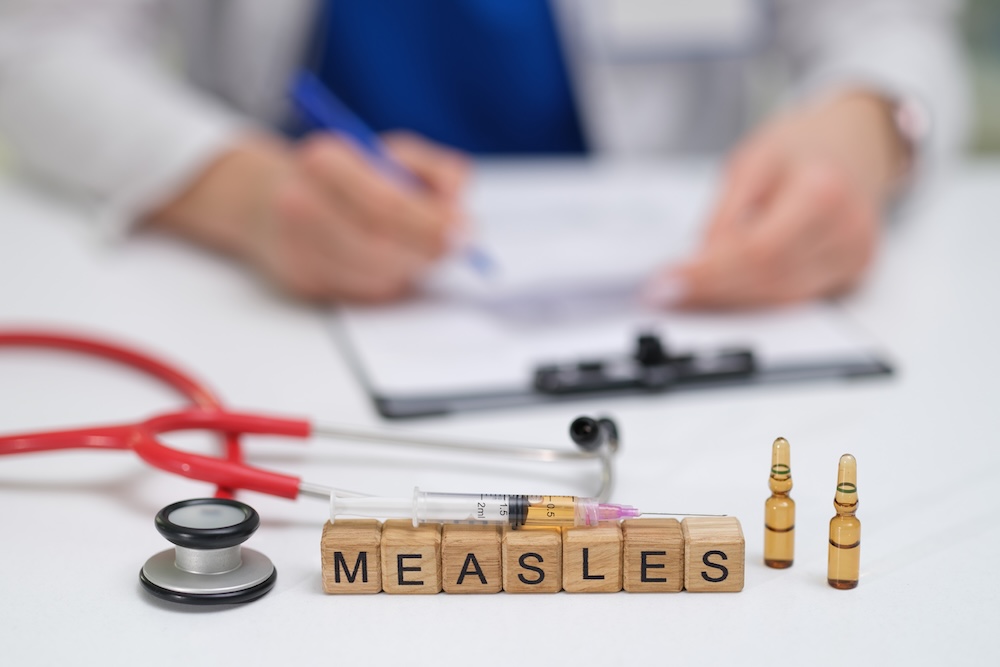The recent measles outbreak is causing many parents to feel concerned. Measles is a highly contagious viral infection that can cause serious complications, especially in young children.As cases are currently on the rise, it’s important for families to understand the symptoms, how to prevent measles, and what to do if their child is exposed. In this blog, we provide essential information about measles and how to best protect your children
Measles is caused by a virus that spreads easily through coughing, sneezing, or direct contact with an infected person. It can also travel along air currents and infect people in a different room. The virus can linger in the air and on surfaces for up to two hours as well. Even brief exposure is risky, and those who have conditions that cause a weaker immune system are at greater risk of infection. If someone has become infected with measles, they are contagious even before they start experiencing symptoms and can be contagious for up to 4 days after they get a rash. Symptoms may begin to appear 8-12 days after exposure. The most common symptoms include a high fever, rash, runny nose, red, watery eyes, diarrhea, and ear infection. Some kids might have small white spots (also known as Koplik spots) that appear inside the mouth. Children with measles can feel very ill,and the rash can last longer than a week.
Measles is considered a dangerous disease because it can lead to severe illness especially in those with weakened immune systems, such as babies, children, and those who are pregnant. Other potential complications include hearing loss from ear infections, pneumonia, and brain swelling that can cause seizures or brain damage.
Some families might wonder if vitamin A can prevent or cure measles. While getting enough vitamin A can help reduce the severity of the disease, it is not a preventative method. During a measles infection, however, the virus can cause a vitamin A deficiency. Therefore, if a child is diagnosed with measles, the pediatrician may recommend two doses of vitamin A, 24 hours apart and for a total of two days. It’s important to keep in mind that vitamin A should not be used to prevent measles and that giving your child too much vitamin A can cause nausea, vomiting, headaches, fatigue, joint and bone pain, blurry vision, skin and hair problems, high pressure in the skull, liver damage, and even a coma. Most kids get vitamin A from a healthy diet, and babies get the vitamin from breast milk or formula. If you believe your child needs a supplement, talk to the pediatrician first.
The best way to protect your children from measles is to get them vaccinated with the MMR vaccine. Children should receive the first dose when they are 12-15 months old and the second dose when they are 4-6 years old. Children who are at higher risk may need three doses. The MMR vaccine can provide lifelong immunity to measles and can help prevent the spread of the disease. It is also safe, and contrary to some beliefs, it does not cause autism. Occasional side effects can occur, like a fever, skin tenderness, or a rash. Babies under the age of one should have limited exposure to crowded areas whenever possible, especially during an outbreak. They should also be kept away from any sick individuals.
If you think your child has been exposed to measles, contact our pediatrician right away. To schedule your child’s vaccination, please call our office.

